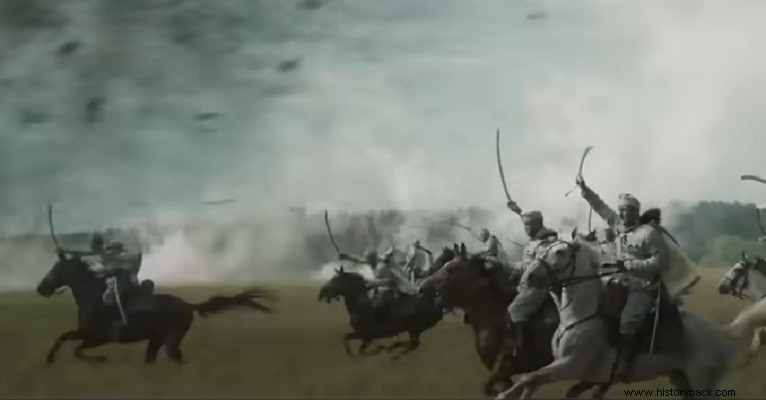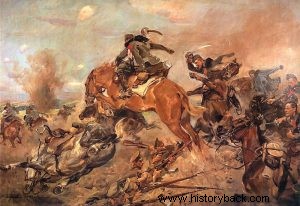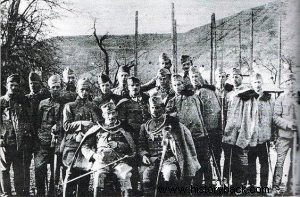
Some peoples have a special martial tradition of defying death. One of them is the Polish people who - lives parallel to the Greek - were for centuries slaves to three masters (Germans, Austrians and mainly Russians). When World War I broke out most of Poland was part of the tsarist empire.
More politically minded than the Russians, the Austrians promised the Poles national independence if they would fight on their side. Thus many Poles – subjects of the Russian tsar officially – volunteered for the Austrian (Austro-Hungarian) army and formed the Polish Legions in memory of the units their ancestors had formed for the sake of Napoleon who had also promised them freedom.
In the Spring of 1915 the 2nd Polish Brigade was sent to Vukovina. Polish infantry and artillery were deployed in the trenches facing the Russians. At the same time the 2nd and 3rd Cavalry Companies of the Brigade were united and formed the 2nd Polish Ulan Regiment. Hillarch Zbigniew Dunin-Vazovic was put in charge , a brave officer and fanatical defender of Polish independence.
On June 12, 1915, the Austrian command ordered the execution of a combined attack against the opposite Russian positions. The main attack would be carried out by the Austrian infantry. However, the attack failed and the next day the Russians counterattacked. In the afternoon of the following June 13, the Russians moved in their turn against the enemies in the area of Rokitna. Immediately the Austrian command ordered Vazowicz to attack with his cavalry covering the left flank of the counter-attacking Austrian infantry.
Vazovic undertook the desperate operation with the 2nd army alone, placing himself in charge of it. A total of only 73 Polish horsemen would set out. The 2nd Infantry was deployed in two lines and with the slogan "Long Live Poland" marched to the sound of the bugle, with the flag flying. The Polish horsemen began their movement with a light gallop, continued with a gallop, and when they began to receive Russian fire broke into a wild gallop with swords in hand.
Within 15 minutes the Poles had broken through three lines of Russian trenches by sabering or shooting anyone in front of them reaching the line of Russian artillery! However the cost was heavy. Of the attackers 17 were killed and 30 wounded – eight of the wounded were captured. The advance of the few Poles caused panic among the Russians, but the Austrian infantry did not take advantage of it. Thus, the sacrifice of the Polish horsemen had no substantial response.
However, their heroic advance added another legend to military history and the song written for the heroes of Rokitnia was sung by the Polish heroes of Monte Cassino in World War II. The dead Poles, among them Wazowicz, the commander of Ilis Kizielnicki and the lieutenant colonel Wlodek, were buried in the area which after the First World War was given to Romania. In 1923 the bodies were returned to Poland and interred in Krakow. After the battle, the survivors composed the "Song of Vazovič's Ili". The advance of Rokytna is recorded on the monument to the Unknown Soldier in Warsaw. It is worth noting that after the Treaty of Brest-Litovsk the 2nd Polish Brigade rebelled and fought against the Austrians and Germans since the only goal of its men was the liberation of their enslaved homeland.


